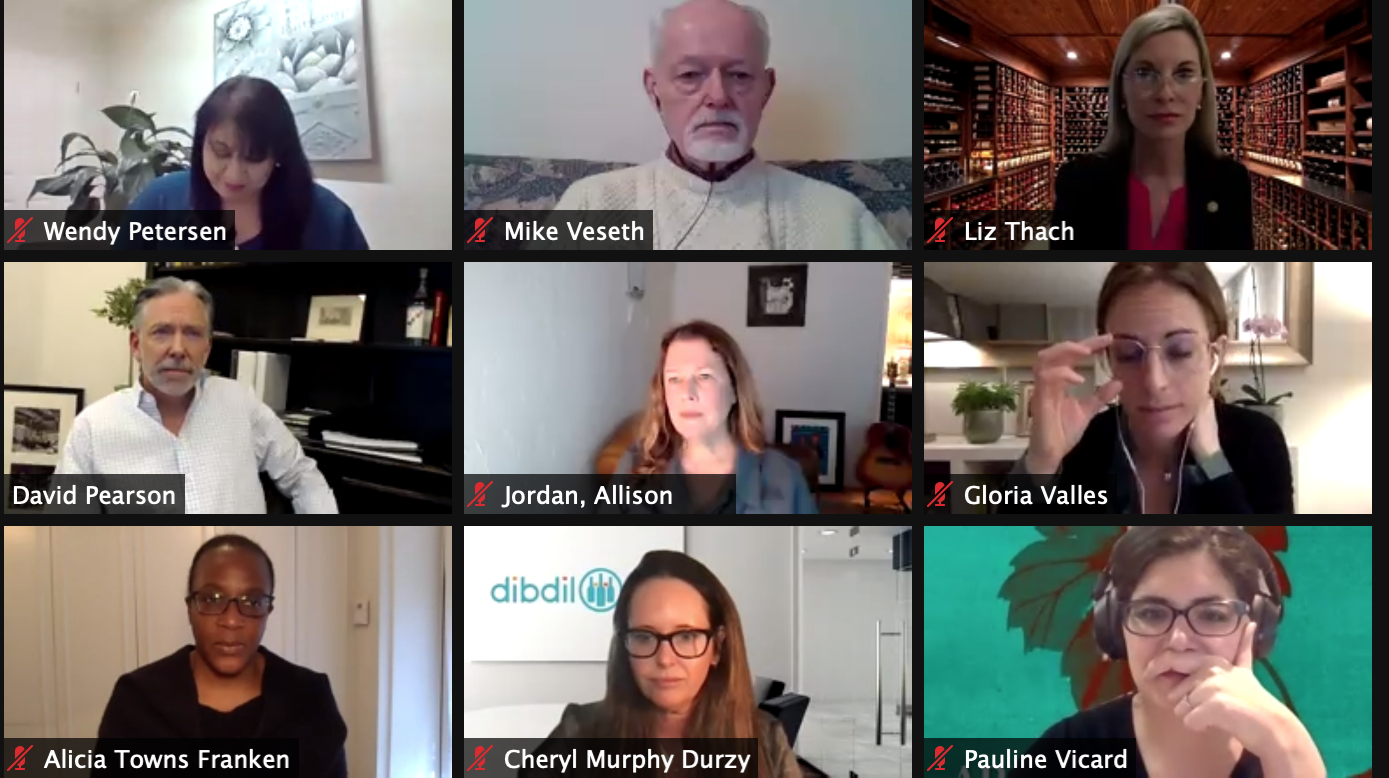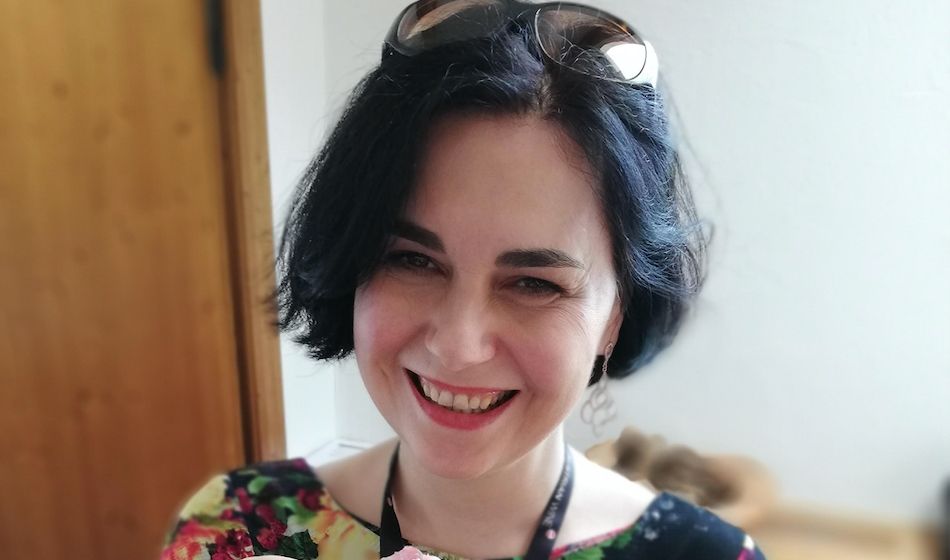Where do you start with an event as far reaching and bold as Wine Future 2021? Everyone taking part would have done so from their own perspective and liked, disliked, got frustrated or inspiredin different measures by what they saw and heard.
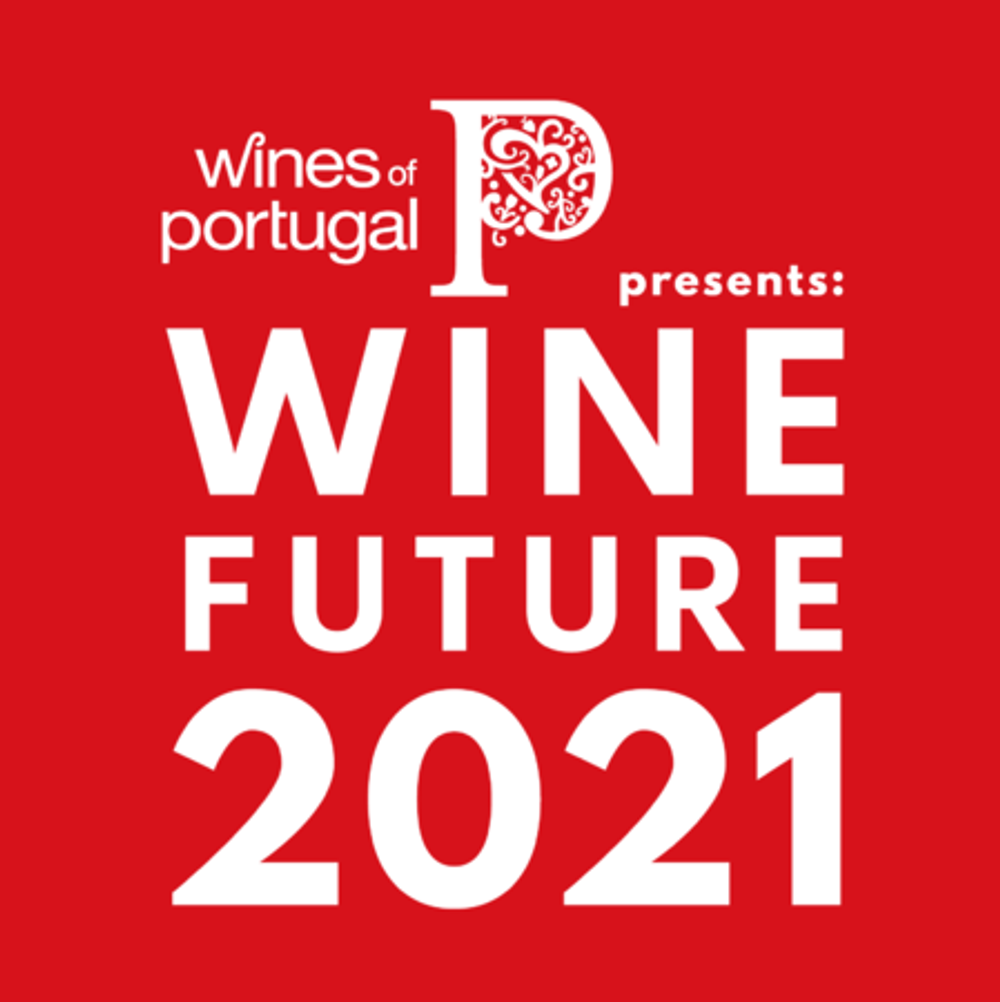
As someone who attended both the previous Wine Future events in Rioja in 2009 and Hong Kong 2011 it was great to see this ground breaking event back in the global wine calendar. As nothing has really replaced it in the 10 years it has been away.
But if was to return then, as its founder Pancho Campo said, now was the time such has been the enormity of the impact Covid-19 has had, not just on the internationalwine industry, but all business sectors, every economy in the world and all our lives.
Its challenge was to do justice to the huge changes we have seen and what long term factors we all now need to take on board in whatever part of the wine and drinks industry we work in.
After four days of talks it gave it a pretty good shot. In fact if you look at the roll call of speakers then you could not beat the amount of talent, expertise and wisdom that was brought together online last week. Most sessions were also a triumph in celebrating what is now possible in running a carbon neutral event with speakers coming together from four quarters of the world.
If anything the content was a little too ambitious, trying to get too many people involved in any one session where perhaps one or two less people would have allowed for a more in-depth examination of the topic in hand. But such has been the level of change and upheaval it was also equally important and understandable to hear from as wide a group of people as possible.
Stripping all the content back to some overriding conclusions is not easy, but here we go.
Key takeaways
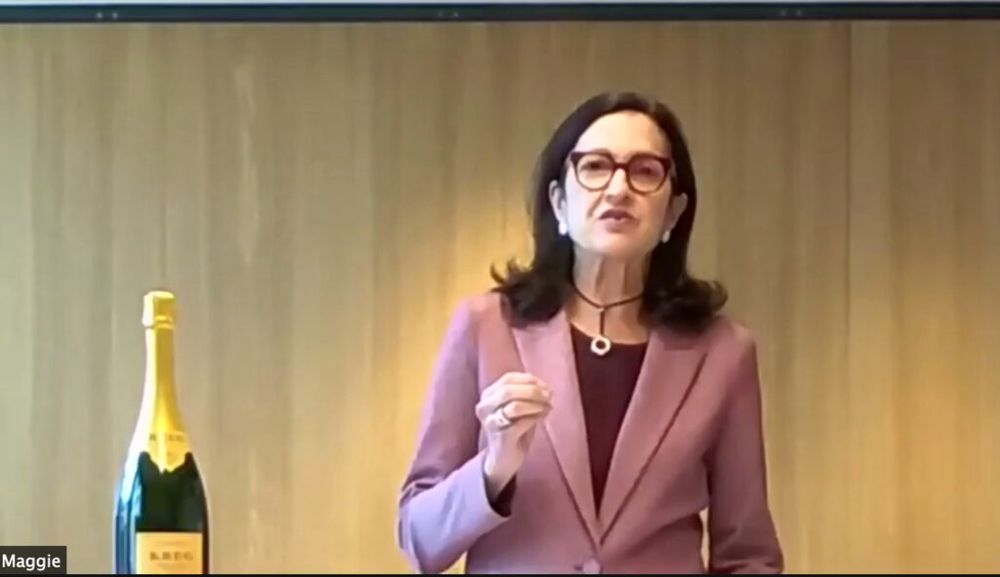
Krug’s Margareth Henriquez said this was a time for all companies to wake up to what they are good and bad at
Time and again we heard how many of the trends that were taking place prior to covid have all been on fast track during it. As David Pearson, managing director of Meadowood Estate in Napa Valley, said the consumer push and desire for more authentic products from brands and businesses they can believe in has only got stronger in 2020. It’s no longer just about the wines you make, but what you stand for as a producer, what you are giving back and how you are going out of your way to engage, entertain and go that extra mile, he said.
It was interesting to hear such industry stalwarts as Eduardo Chadwick, president of Vina Errazuriz Wines in Chile and Margareth Henriquez, president and chief executive of Krug Champagne, talk about how much even they have learnt in the last year having to put on over 200 masterclasses, tastings and events online. For Chadwick it has meant being even more of an entertainer, sharing the experience of the vineyard and what goes on behind the scenes rather than going into the technical detail you might do at a live tasting or dinner.
The Krug team, says Henriquez, has all been trained in new ways to communicate and engage online that makes the most of different digital platforms, like Teams and Zoom, so you are using the right kind of content for each one.
She said what the pandemic had done is strip back just how well companies were doing before it. “A crisis will show where you are strong, but also where you are weak.”
Let me tell you a story

Francis Ford Coppola was in a philosophical mood when he addressed the Wine Future audience
Now the wine industry has for too long claimed its success lies in how well it is able to tell its own story. Whilst all the time failing universally to talk in a language that anyone outside the sector can understand. Making story telling very much a one way process. The wine industry talks. And very few people listen.
Wine Future heard from arguably one of the greatest story tellers of the last 50 years – Hollywood director, turned wine producer Francis Ford Coppola. Now admittedly his 15 minute appearance would probably be best left for the director’s cut, but what did come out crystal clear was the importance of putting emotion at the heart of everything we communicate with our audience.
It might not feel like it at times but at no other period in history have we, as a human race, been askind, friendly and supportive of each other, said Coppola channeling full on Peter Sellers in Being There. Those are the emotional cues we all now want to engage and feed off and they have become even more pronounced in the last year when we have spent so much of it alone and without our normal emotional human, personal connections, he explained.
Yet so much of how the wine industry communicates with consumers is focused around complex wine tasting notes and in depth information about soils, climate and terroir. Only converted wine geeks can get emotional about that.
The best stories are also the ones that mean the most to us – personally. But how do you do that in wine? Well, through data for a start. If Facebook knows what you have been searching for on Google and then can fire relevant adverts at you, then why can’t the wine industry use data and algorithms to work out which wines and what sort of content different people are going to be interested in?
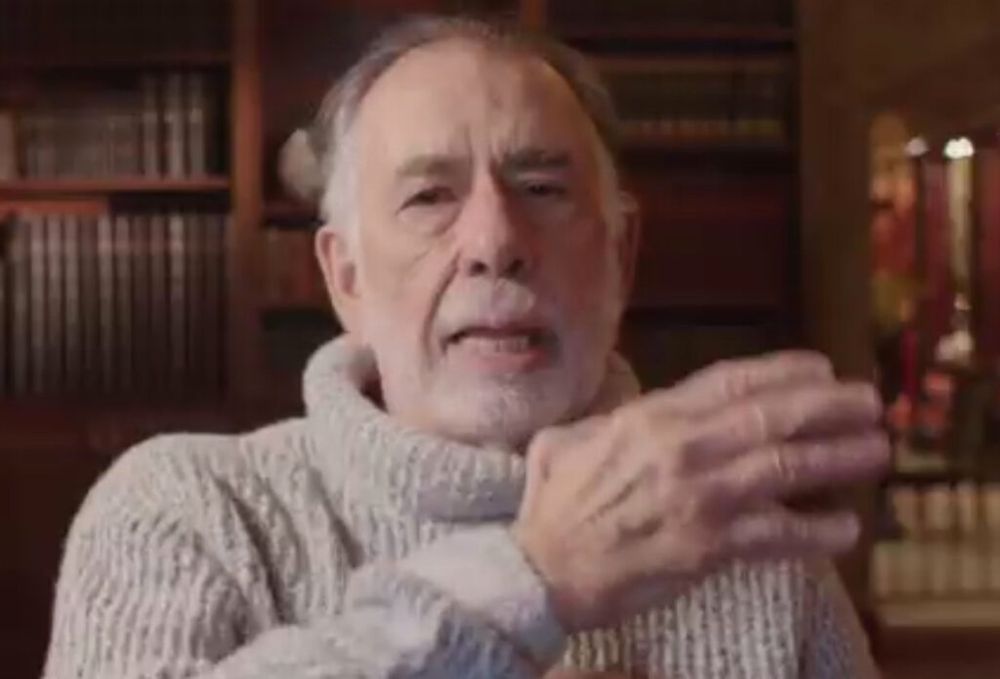
We have to learn how to communicate through our emotions says Francis Ford Coppola
Putting data and digital first
Data, digital and social media are still the most sought after sessions to attend in these sort of events – because there is still so much for the wine industry to understand and catch up on.
Paul Mabray, co-founder of Pix, the soon to be launched vertical search platform for wine, said although he might run a technology business, it is actually more focused on how that technology can help it better understand its clients’ customers and help show them what they are interested in and what motivates them. Used well data analysis allows you to segment your customers into different groups based on their needs and wants, he said.
Polly Hammond, managing director of the digital marketing agency, 5Forests, said data allows us to be “empathetic” with your market. It might seem abstract, but it actually makes it human.
Dan Sims, co-founder of Revel the wine events business he runs in Australia and Asia, says he uses his customer data to better understand why people come to their events, what they are looking for when they do and how they can make them more attractive and relevant in the future.
He actually likens it to his time being a sommelier where he would have to quickly assess the kind of wines customers might want to order on a table by table basis. The data analysis he is doing is the same, but just on a bigger level.
Understanding and talking to your “audience”
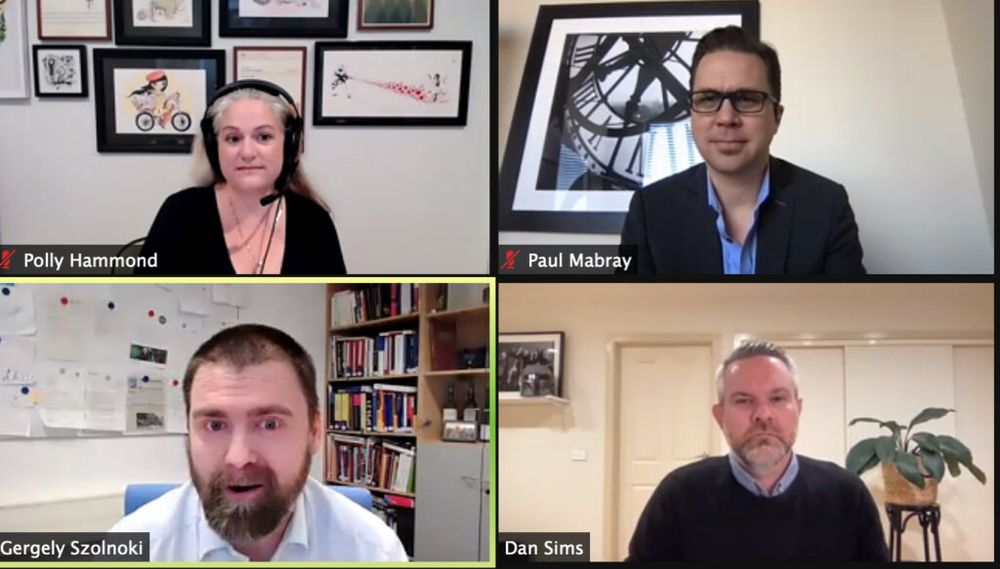
It’s all about understanding and making the most of your personal data as the excellent session above examined.
Sims also crucially sees his customers as a living, breathing “audience” that wants to be heard and listened to. Revel’s job is to not only do that, but then use data to help “nurture” that audience so that it is putting on future events that tap directly into what they are asking for and be prepared to pay to attend. “I like to lean into the chaos,” he said and make sense of it.
It’s the personalisation of data that Mabray believes more wine businesses need to be investing in rather than relying on industry wide, macro consumer surveys that might tell you what an average man of X age might buy. Research that is often biased based on who is conducting it.
It’s why he believes “behavioural data trumps survey data 100% of the time”.
Analysing your own business data can be particularly powerful for small to medium sized companies, said Hammond. “It can help them kick ass,” she added and can potentially help them close the gap to their bigger competitors. For they have the flexibility to use that data in real time and make immediate and effective changes to their company.
Larger operators are often using data to make decisions for the next five years and don’t have that same ability to use it to act fast, she added. Smaller companies can use data to “test, trial and move on”.
She also urges companies not to get distracted by what big industry, macro reports might say. “Rely on your own data,” is her motto.
“You have got to be moving and adapting, sometimes on a daily or hourly basis. Smaller businesses can do that,” agreed Sims.
Juan Muñoz, chief executive of 3D Virtual Tours in Spain, said the last year has shown how technology can be the “great enabler” when it comes to consumer experience and it has been able to work with wineries, museums and public spaces to create 3D tours that allows people to still visit those places but virtually from home.
The average consumer’s expectation and understanding of what technology can do and offer them has gone up dramatically in the last 12 months. “We need to know how to adapt to that,” he said.
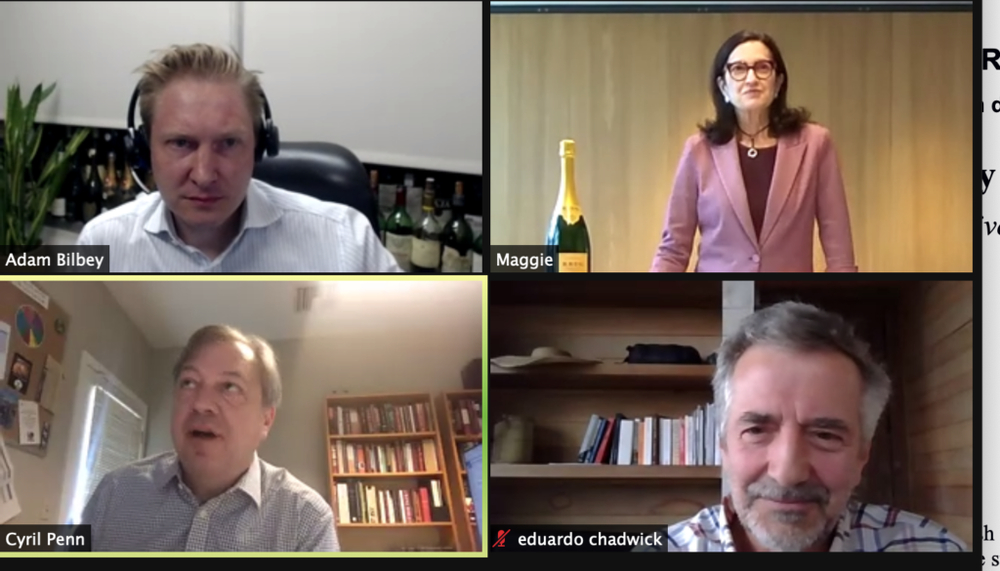
Cyril Penn of Wine Business Monthly hosts the session with Errazuriz’s Eduardo Chadwick, Krug’s Margareth Henriquez and Sotheby’s Adam Bilbey
Using e-commerce
The boom in e-commerce in the last year has meant any wine business looking to sell its wine, either to the trade or to public, has had to get online to do it. But it has also created two kinds of business. The ones that have turned to e-commerce through necessity and those that have used it to transform the way they run their business.
Ben Salisbury, founder of Salisbury Creative Group in the US, said it was quite easy to distinguish between the two by looking at which companies are using CRM (Customer Relationship Marketing) to really drive e-commerce and digital power through their business. For this is not just about using technology it is a new business discipline that companies have to learn.
It’s how you can identify and target the key accounts that are the most profitable and beneficial to your company, he said. It allows you to drive lead generation and increase actual sales. It also means having the right digital skills in your business to make the most of this technology in how you use direct marketing and email software to build your customer base.
But we also need to remember, stressed, Allison Jordan, executive director of the California Sustainable Wine Growing Alliance, that although the wine sector has arguably seen years of growth in e-commerce in just 12 months, it came into covid way behind other sectors who will have moved on again in the year that wine has been trying to catch up.
All of which has raised the bar and expectations of consumers who now expect all online players to be able to deliver the next day if not later that day.
Adam Bilbey, senior director for Sotheby’s Wine Asia and Europe, said the biggest challenge for any business in 2020 what its “transformation to digital”. Sotheby’s was no different and whilst in 2019 it held 27 major auctions around the world, six of which were online, in 2020 it had 39 auctions of which 27 were online and only 12 were “live sales”.
“The curation and telling of stories can be far more effective online and you are also able to tell it so many more people at the same time. It can also be more meaningful when you are in the comfort of your own home.”
By doing them online it meant 37% of bidders were new, compared to 25% in 2019, and the average age dropped considerably.

Aurelio Montes did not expect the huge impact there has been in e-commerce sales
Aurelio Montes, speaking in his role as chairman of Wines of Chile, as well as his own business said the boom in e-commerce had at least gone some way to clawing back some of the lost on-trade business around the world. “E-commerce has given us sales we never thought we could get. Some companies have seen increases of up to 500%. We did not expect that to happen.”
The role of e-commerce will only “grow and grow” and the wine industry needs to understand more about how it can be part of that growth and how we talk to consumers in that way.
“There is no going back to the old model,” added Philip Gregan, chief executive of New Zealand Wine.
It’s the economy – stupid
Wine Future was also able to look ahead at the potential economic fallout from covid and the threat of global recession.
Stephen Rannekleiv, executive director of food and agribusiness research at Rabobank, said that whilst he was confident we will eventually see a return so some form of normality, there are already long term winners and losers from Covid-19.
The explosion in e-commerce, for example, means the off-trade and retail that supports it is going to be in a much better position that the on-trade to benefit from a fundamental change in the way that people now shop and spend their money, he added. Yes, the on-trade will find new opportunities to build their online share, it is only ever going to be a fraction of what the retail sector will enjoy.
Economies of scale will mean the bigger, well funded operators, particularly wineries, are going to be better placed to come out of covid in a stronger position, but that said they also lack the flexibility and ability to adapt and change and be as truly close to their customer base as their smaller counterparts, he added.
Encouragingly banks and private equity, said Rannekleiv, are “injecting massive liquidity into markets” so those well placed to grow should be able to find the “stimulus” to do so. Which, in turn, will also lead to more consolidation and merger activity down the line.
The economic impact of covid is already there to be seen in the huge damage it has caused in South Africa with the wine and drinks industry reeling from a succession of alcohol bans in the country over the last 12 months.
Mike Ratcliffe, co-founder, of South African premium wine brand Vilafonté and chairman of Stellenbosch Wine Routes, said you have to remember that South Africa as a wine country was only just getting off its knees after years of drought and covid has been the double whammy.
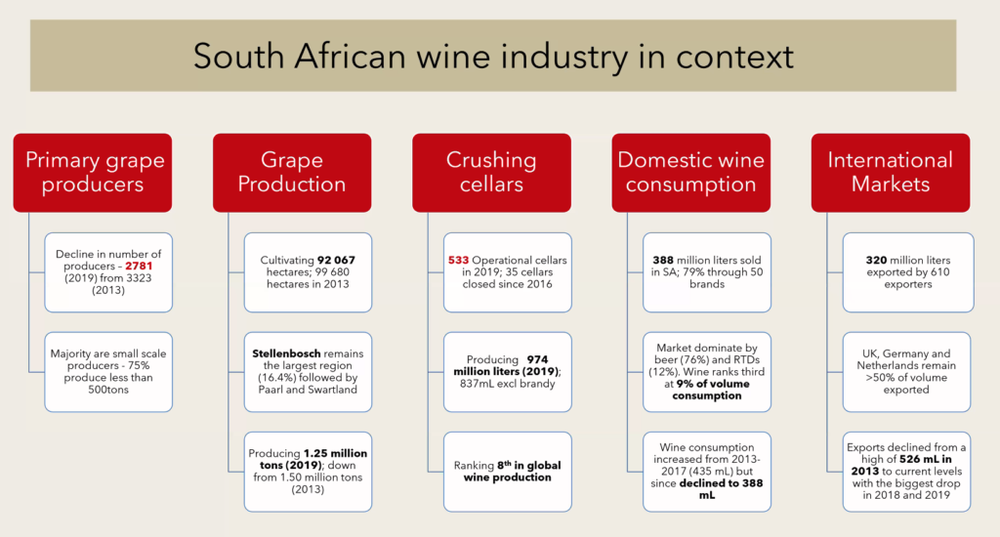
Kleine Zalze’s Carina Gous set out in a series of charts just how big the impact of covid and national bans on alcohol sales have had on the local wine industy
Carina Gous, marketing and sales executive at South African producer, Kleine Zalze, shared a series of devastating slides that set out in micro detail just how bad the situation in South Africa has become.
Manuel Louzada, chief executive of the premium Rothschild and Concha y Toro Chilean winery, Almaviva, said he had “no doubt” we need to prepare ourselves for a world recession.
Ratcliffe agreed the “economy of the world is more severe than it was a year ago” but then you can only control what is in your own hands and concentrate on where you can make a difference.
The wine industry as a whole, though, “needs to pray” that China’s great juggernaut of a wine market continues as that is the “only real engine that is driving wine at the moment,” stressed Ratcfliffe.
It also needs to wake up to the fact its core audience is ageing and it is not picking up new consumers in the numbers it needs to replace them. Wine, he added, needs to be making its case on the next social media platforms like TikTok and not still just talking to out loyal customer base on Facebook. That’s what leading wine figures need to be thinking about, he said.
Louzada warned the industry needs also to look at the potential impact of an ever more effective health lobby and find better ways where it can have a louder collective voice to counteract some of the claims made against it.
“We need to be part of the solution,” agreed Ratfcliffe.
Philip Gregan at New Zealand Wine said the last year has taught us all to “expect the unexpected” but his big takeaway is how much more we will all now think about health and wellness and how important that is. “It’s a trend that has been impacting on wine for a long time,” he admitted, but it will become even more acute in the coming years. “That’s an issue for alcohol.”
Emilio Restoy, president of the Spanish Wine Federation, agreed and said the industry needs to brace itself for “far more restrictions” in the next five to 10 years. Just look at what has happened to the tobacco and sugar industry. Wine is very much on that agenda. “We need to be pro-active and engage with this debate. It we don’t it will be hard to come back.”
- In Parts 2 and 3 of our Wine Future reports Richard Siddle will examine the debates focused on the on-trade’s recovery, how covid has transformed our working lives, climate change and a wide ranging discussion on what the wine industry can do to be more diverse and attract more people from colour at all levels of business.
- You can find out more about Wine Future 2021 at its website here.
